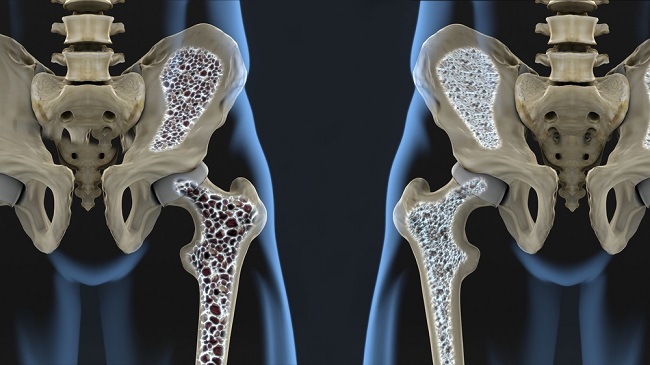Benazepril is a drug to treat hypertension. With controlled blood pressure, the risk happening complications, such as heart failure, kidney failure, heart attack, or stroke, can be inherited.
Benazepril belongs to the class antihypertensive drug ACE inhibitor. This drug works by inhibiting the conversion or conversion of angiotensin I to angiotensin II, so that blood vessels can widen. That way, the supply of blood and oxygen to the heart will increase and blood pressure can drop.

To help lower blood pressure, in addition to the administration of drugs, including benazepril, patients must also adopt a healthy lifestyle, including limiting the consumption of high-salt foods, exercising regularly, and maintaining an ideal body weight.
Benazepril trademark: -
What is Benazepril
| group | Prescription drugs |
| Category | ACE inhibitor |
| Benefit | Overcoming hypertension |
| Consumed by | Adults and children aged 6 years and over |
| Benazepril for pregnant and lactating women | Category D:There is positive evidence of risks to the human fetus, but the benefits may outweigh the risks, for example in dealing with life-threatening situations. Benazepril can be absorbed into breast milk in small amounts. For breastfeeding mothers, it is recommended to consult a doctor before using this drug. |
| Drug form | Tablet |
Precautions Before Taking Benazepril
Before taking the drug benazepril, you need to pay attention to the following:
- Do not use benazepril if you are allergic to this drug or any drugs ACE inhibitor other. Tell your doctor about any allergies you have.
- Tell your doctor if you have or have had angioedema, heart disease, hyperkalemia, kidney disease, liver disease, lupus, diabetes, or scleroderma.
- Do not drive a vehicle or do activities that require alertness, after taking benazepril, because this medicine can cause dizziness.
- Tell your doctor if you are taking benazepril before having surgery, including dental surgery.
- Tell your doctor if you are taking any medications, herbal products, or supplements, including potassium supplements.
- Tell your doctor if you are pregnant, breastfeeding, or planning a pregnancy. Use effective contraception while taking benazepril.
- See your doctor right away if you have an allergic drug reaction, serious side effect, or overdose after taking benazepril.
Dosage and Instructions for Use of Benazepril
The following are general doses of benazepril based on the patient's condition and age:
Condition: Hypertension
- Mature: 10 mg, 1 time a day. Maintenance dose 20–40 mg, once daily, or in 2 separate doses. The maximum dose is 80 mg per day. When combined with diuretic drugs, the dose is 5 mg, 1 time a day.
- Children 6 years and over: 0.2 mg/kg body weight, once a day. The maintenance dose is 0.6 mg/kg, once a day. The maximum dose is 40 mg/kg body weight.
Condition: Heart failure
- Mature: 2.5 mg, once a day, the dose will be adjusted according to the patient's condition. The maximum dose is 20 mg per day.
How to Take Benazepril Correctly
Follow the doctor's advice and read the information listed on the medicine package before taking benazepril. Do not reduce or increase the dose without consulting your doctor first.
Benazepril can be taken before or after meals. Try to take benazepril at the same time every day for maximum treatment.
Keep taking this medicine even if you feel well. Do not stop taking this medication without consulting your doctor.
If you forget to take benazepril, it is recommended to take it immediately if the gap between the next consumption schedule is not too close. If it is close, ignore it and do not double the dose.
It is recommended not to take benazepril within 36 hours of taking sacubitrile because it can increase the risk of angioedema.
While you are taking benazepril, your doctor may ask you to have regular blood or urine tests to monitor your body's response to the drug.
The use of benazepril should be accompanied by the implementation of a healthy lifestyle, such as following a low salt and low fat diet, exercising regularly at least 30 minutes every day, and not smoking or consuming alcohol.
Store benazepril in a dry place away from direct sunlight. Keep this medicine out of reach of children.
Interactions of Benazepril with Other Drugs
The following are some of the effects of drug interactions that can occur when benazepril is used with other drugs:
- Increased levels and toxic effects of lithium
- Increased risk of developing hyperkalemia when used with potassium-sparing diuretics or potassium supplements
- Increased risk of angioedema when used with allopurinol or sacubitrinol
- Increased risk of kidney damage aliskiren or nonsteroidal anti-inflammatory drugs (NSAIDs), such as aspirin, ibuprofen, or naproxen
- Increased risk of side effects, such as hypotension, hyperkalemia, or renal impairment, when used with ARB antihypertensive drugs, such as candesartan or irbesartan
- Increased risk of liver damage when used with lomitapide
- Increased risk of developing hypoglycemia (low blood sugar levels) if used with insulin or metformin
Benazepril Side Effects and Dangers
Some of the side effects that can occur after taking benazepril are:
- Drowsiness
- Dizzy
- Cough
- Headache
- Nauseous
Check with your doctor if the side effects above do not subside immediately or are getting worse. You need to see a doctor immediately if you experience an allergic drug reaction or more serious side effects, such as:
- High levels of potassium which can be characterized by unusual tiredness or weakness and a slow or irregular heart rate
- Infrequent urination or very little urine
- Swelling of the face, lips, tongue, throat, feet, hands, or eyes
- Impaired liver function that can be characterized by symptoms, such as jaundice, dark urine, unusual tiredness, or severe abdominal pain
- Dizziness so heavy that you faint









